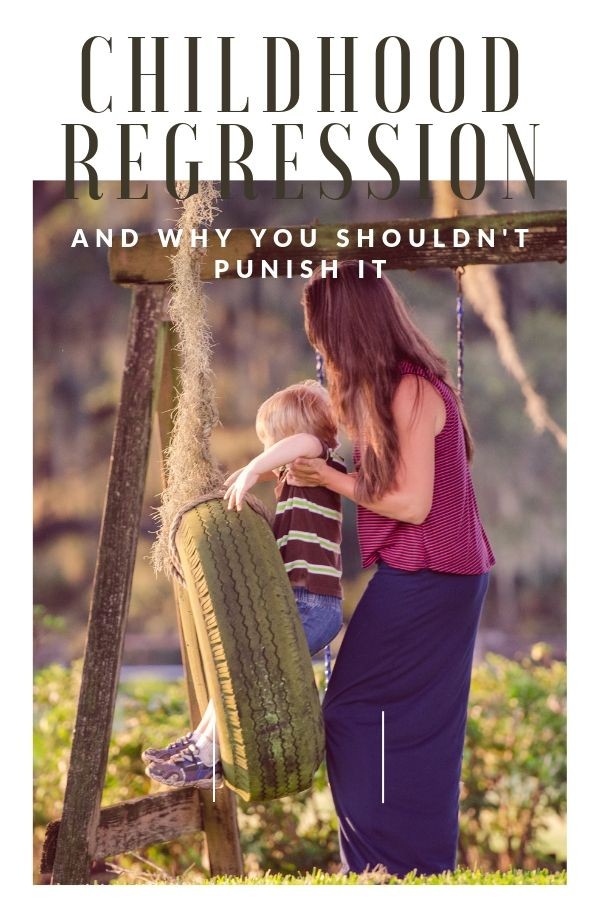One of the most frustrating things we can experience as parents is the feeling of, “I thought we were past this!” Whether you’re dealing with a child who is hitting again after a season of nice hands or a little one who is fighting sleep after months of sweet dreams, the feeling of having to retrace your steps as a parent can be maddening. But although regression can make us want to pull our hair our and cry ugly tears in the closet, here's why Positive Parenting says you shouldn’t punish regression.
What is Regression?
In it’s simplest terms, regression is returning to a previous developmental phase, usually as a reaction to stress. Our minds turn to self preservation and find comfort in returning to a time when we remember feeling safe. When I was in 7th grade, I had terrible struggles with anxiety and during that time, all I wanted to do was watch Full House and The Sound of Music on repeat – both things I had watched as a very little girl, before the anxiety ever started. Those acts returned a feeling of safety to my stressed mine, although outwardly they looked like “regression.”
Regression is Normal
Every kid goes through a period(s) of emotional and behavioral regression throughout their childhood and into their teenaged years. Sometimes that regression is because of a change or stress in their routine or environment, like starting a new daycare, adding a sibling or a family move. Other times the regression may be from a less obvious stressor – like pressure at school or a movie that was more intense than your child was prepared for. Whatever the cause, their brains are responding to a perceived stress and reacting accordingly – doing whatever is necessary to calm down.
Punishing Regression
When parents choose to punish a child who is experiencing a period of regression, we disrupt the natural loop that is hardwired to help children self soothe. If your 9-year-old child suddenly begins sucking her thumb after 5 years, rather than saying “Why are you acting like a baby?” and adding to her stress, it is your job to get to the bottom of her behavior’s antecedent – otherwise know as the cause of the behavior. Punishing the act of regression doesn’t alleviate the stressor, it only adds shame into the equation, adding more stress and thus creating a terrible cycle.
How to Help with Regression
- As a parent, getting to the bottom of your child’s stressor is your #1 job when encountering regression. Often times these things can be simple fixes or things you can start talking about with your kids to take away a bit of the uncertainty and scare-factor.
- Engage with your child – even more that you already are. I don’t mean you have to stop your entire life to play Legos all day long, but adding a few child-directed moments into your day and verbally sharing how much you enjoy spending that time together is a positive tool that will help your child feel safe and supported.
- Find a happy medium and support your child through their stress. One of our children recently started Kindergarten and suddenly wants to snuggle with his blanket all the time. We have a rule in our house that Blankie stays in his bed (I just couldn’t spend any more money replacing blankets that went rogue while we were at the grocery store), but during this transitional period, I will often go to his room with him for a little extra snuggle time with Blankie to fill his cup and create an emotionally safe space for him to adjust to his new life at school. We don’t use any negative language about this time and often share how nice it is to be able to take a break and relax with Blankie. Helping our kids to pay attention to their body’s signals that they need an emotional break is a skill that will benefit them for their whole lives!

Authors note: The type of regression discussed in this article is limited to developmentally typical regression often observed in children. If you have a specific question about a behavior you observe in your child, talk with your pediatrician.
This post comes from the TODAY Parenting Team community, where all members are welcome to post and discuss parenting solutions. Learn more and join us! Because we're all in this together.
